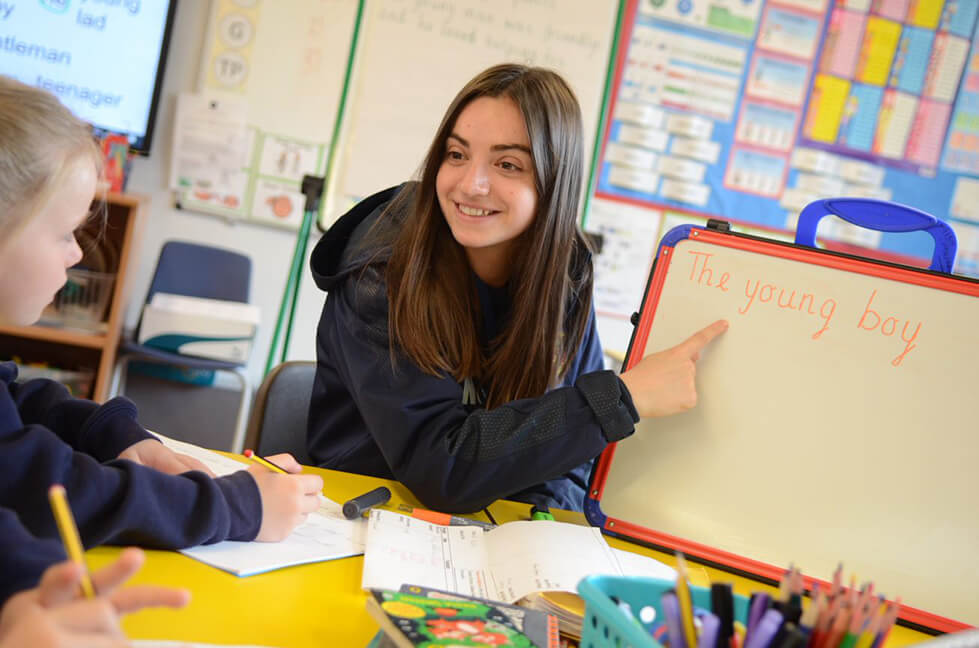Children’s reading trends in the aftermath of Covid
Following a survey of more than seventy thousand children, the National Literacy Trust has shared the latest insights on children’s reading habits and enjoyment, showing that the gains in reading engagement seen in the early stages of the pandemic have since been ‘completely eroded.’
Reading enjoyment reached a 15-year-low in early 2020, falling to 47.8%. However, by spring, levels had risen to their second highest point at 55.9%, coinciding with the first national lockdown. As schools closed across the UK, children commented that they found more time to engage with reading. However, levels of enjoyment have since declined, dropping back down to 47.8%.
Children who reported the lowest levels of reading enjoyment were from disadvantaged backgrounds. Of these, the majority were boys. When asked about reading habits, only 20.6% of boys on free school meals (FSM) read daily, compared to 28% of children on average. Researchers noted there were large gender differences in attitudes towards reading, as more girls than boys felt that reading was cool and made them feel better. A third of boys reported they only read when they had to, compared to just a quarter of girls.
Similarly, reading engagement was strongly influenced by children’s socioeconomic backgrounds. A third of children on FSM reported that they struggled to find reading materials that interested them, compared to a quarter of their peers. Whilst almost 40% of all children said their parents helped them to find things to read, children on FSM were less likely to be encouraged to read at home or discuss what they were reading with their families.
Reflecting on their findings, researchers conclude that ‘efforts to encourage reading and support reading enjoyment in all children, but especially boys and those receiving FSMs, must be redoubled.’ To find out more about children’s reading engagement, you can read the full report here.
The continuing cost of living crisis
Last week, the new Prime Minister announced that the energy price cap would be extended to the public sector, alleviating some of the financial pressures faced by schools and trusts. However, as the cost of living crisis continues, school leaders warn that they may still have to make cuts, reducing their curriculum offers and limiting support for pupils.
Following standards set by Ofsted and the government, schools strive to deliver a “broad and balanced” curriculum. However, in a poll carried out by Tes, respondents said it was likely that cuts would prevent them from delivering their curriculum in full. Leaders explain that when the curriculum includes ‘art and music and a number of other subjects, the resources budget is significantly higher.’
Disadvantaged pupils and children with special educational needs are likely to suffer the largest impact. Duncan Spalding, executive headteacher at Aylsham High School, highlights that ‘schools have rightly invested in skilled teams of LSAs/TAs, pastoral support workers, and SEMH workers.’ But now, at a time when children and their families are facing greater hardship, ‘these vital provisions are under grave threat.’
Dan Morrow, chief executive and trust leader at Dartmoor Multi Academy Trust, adds that school trips, extracurricular activities and cultural capital aspects are also at risk, taking away vital opportunities for disadvantaged pupils. He warns that any cuts to provision will ultimately come at the expense of the ‘child who maybe is not gifted and talented in English or maths, but is an incredible artist, or has a real passion for music or food technology.’
Governors share their views on multi-academy trusts
Earlier this year, the government made the case for a fully trust-led system with the publication of the schools white paper. Shortly afterwards, the National Governance Association (NGA) surveyed more than four thousand governors to find out more about their views, experiences and perspectives on multi-academy trusts (MATs). Results show there is a continued positive trend of schools recognising the value of belonging to a MAT, rising to 77% from 69% last year.
In the report, the NGA explains that ‘strong MAT governance relies on the organisation knowing who and what it is and a collective understanding and drive towards one trust vision.’ In the latest poll, 70% of governors report that their school feels part of “one organisation” with other schools inside the trust, and three-quarters feel that their voices are heard by executive leaders and trustees.
The report also shows that the financial position of trusts continues to be steady, as ‘MATs are better placed than any other school type of structure in terms of balancing the budget.’ 86% of respondents feel they are able to balance income and expenditure, whilst a further 29% said they could retain a healthy surplus. However, governors also shared significant concerns about the future, with only 41% agreeing that they have sufficient funding to support their long-term strategy and vision.
Governors also express concern for community engagement, with only 55% of respondents saying that their MAT is effectively engaged with parents and the wider school community, falling from 62% in the previous year. In the schools white paper, the government emphasises the need for local governance arrangements to ensure trusts are ‘responsive to parents and local communities.’
Researchers discovered that ‘the number of maintained schools and single academy trusts (SATs) deciding to join or form a trust has nearly doubled since 2020 from 6% to 11%.’ Yet, despite the government’s ambition to create strong families of schools, the percentage of schools actively pursuing academisation remains small, with 43% still not having considered it. The NGA expects this figure to change as boards begin to ‘digest what [the white paper] was saying and what it potentially means for them as a school.’ To find out more, you can read the full report here.
By staying informed and planning for the future, schools and trusts can achieve their vision and create better outcomes for pupils. If you would like support with reading, school finance, or taking the first step in your journey towards academisation, please get in touch to find out how we can help.














